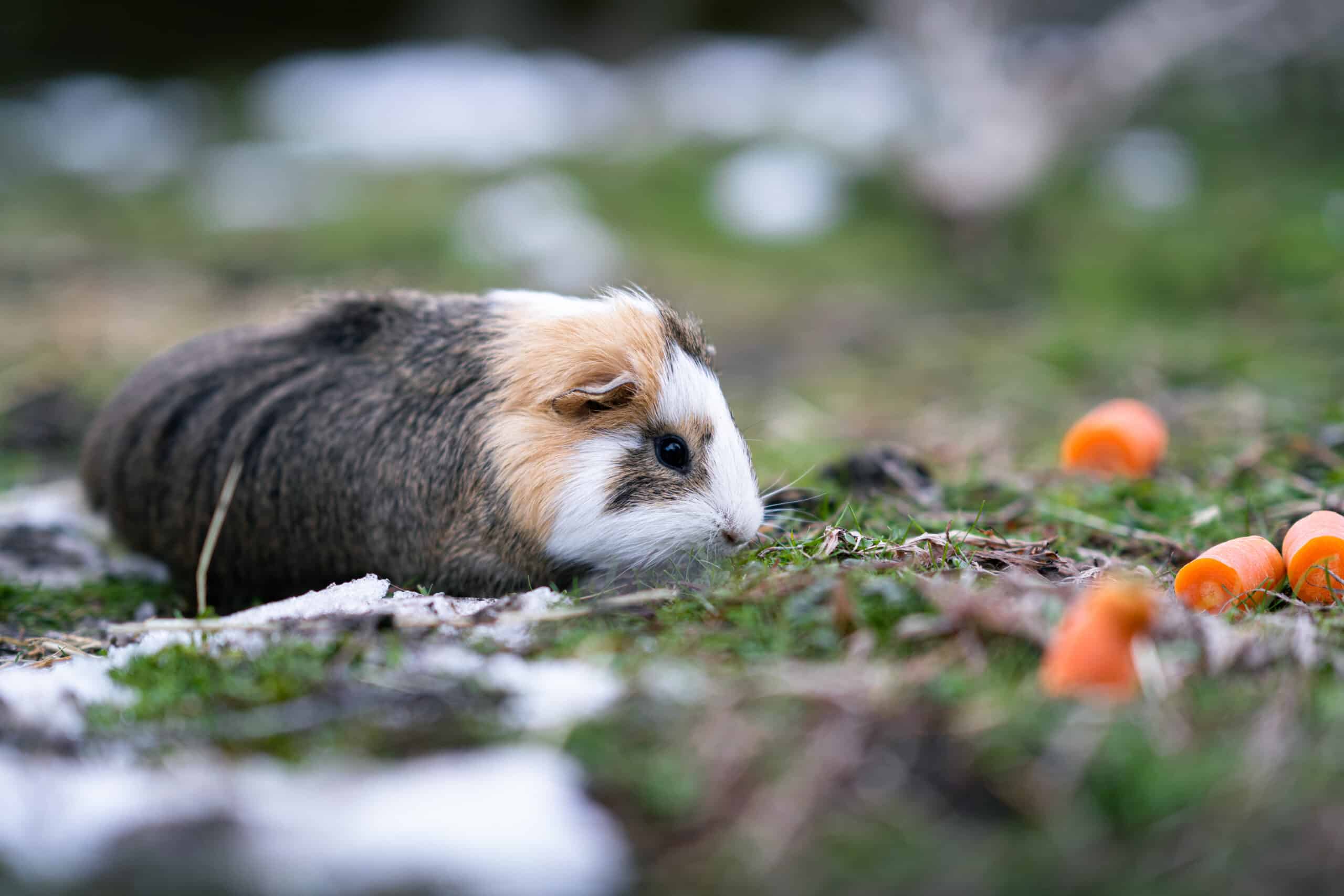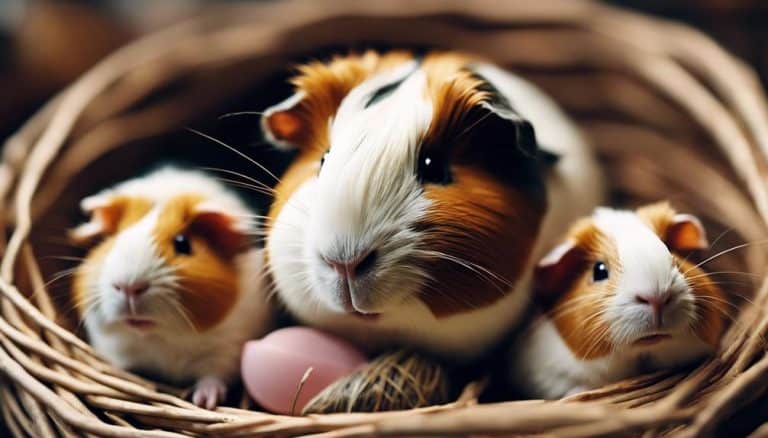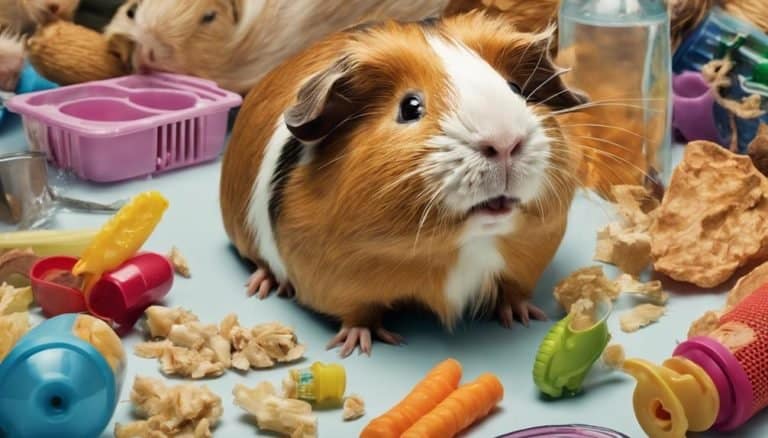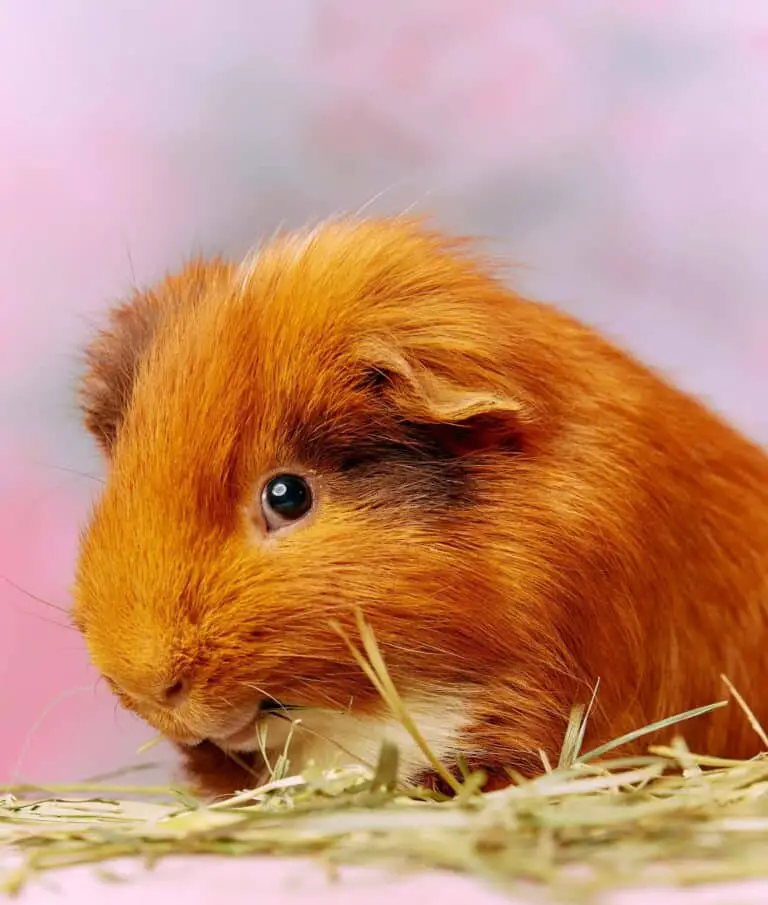The Verdict: Debunking the Myth of Guinea Pigs Causing Mice Infestations
In the realm of urban legends and myths, few have persisted over time as tenaciously as the belief that guinea pigs are responsible for causing mice infestations. Despite countless anecdotes and hearsay fueling this myth, a closer examination reveals a different story altogether. In this article, we aim to debunk this long-standing misconception and shed light on the true culprits behind mice infestations in our homes and communities.
By analyzing scientific evidence and expert opinions, it becomes evident that guinea pigs can be absolved from blame, allowing us to navigate through pest control with accurate knowledge at hand. Join us as we unravel the truth behind this enduring fallacy and strive towards creating a more informed understanding of these adorable rodents’ role in our lives.
The Origins of the Guinea Pig Myth: Exploring the Historical Context
The myth that guinea pigs cause mice infestations has been perpetuated throughout history, but a thorough exploration of its origins reveals a different truth. Despite widespread anecdotes and unsubstantiated claims, scientific evidence and expert opinions point to other culprits behind the presence of mice in our homes and communities. Through careful analysis, we aim to debunk this long-standing misconception and shed light on the actual factors contributing to pest control issues.
By examining the historical context surrounding the guinea pig myth, it becomes clear that various cultural beliefs and superstitions have contributed to its endurance over time. Misunderstandings about these small rodents being carriers of disease or attracting pests may have fueled the notion that they are responsible for mouse infestations. However, through scientific experiments and observations conducted by experts in pest control, it has been determined that guinea pigs do not possess any innate qualities or behaviors that would lead to an increase in mouse populations.
In conclusion, while urban legends often persist due to anecdotal evidence and hearsay, it is important to consider factual information when exploring their origins. The idea that guinea pigs cause mice infestations lacks scientific support and can be attributed to historical misconceptions rather than concrete evidence. Understanding the true causes behind pest control issues is crucial for effective management strategies in our homes and communities.
Examining the Scientific Evidence: Can Guinea Pigs Attract Mice?
Contrary to popular belief, extensive examination of scientific evidence strongly suggests that guinea pigs cannot attract or cause mice infestations. While numerous anecdotes may have perpetuated this myth, it is crucial to rely on empirical data and expert opinions when seeking the truth. Detailed analysis of studies conducted by pest control experts and zoologists consistently points toward alternative factors as the true culprits responsible for mouse infestations.
One reason why guinea pigs are unlikely to attract mice lies in their natural behavior and dietary preferences. Guinea pigs primarily feed on grasses, hay, and vegetables, which do not appeal to mice whose diet mainly consists of grains and seeds. Additionally, guinea pigs tend to live indoors in cages that are often cleaned regularly, minimizing any potential for attracting rodents.
Furthermore, enlightening information from reputable sources such as laboratories specializing in animal behavior reinforces the notion that guinea pigs do not possess any olfactory characteristics or secretions specifically attractive to mice.
Furthermore, guidelines provided by professional exterminators emphasize more pertinent aspects like poor sanitation practices, and improperly stored food, waste collection, and structural defects within buildingsas prominent contributors towards create an inviting environment for a mouse infestation.
Consequently, it is evident through scientific investigationthat we should disassociate our beloved furry pets from unwarranted blame regardingmice infestations; instead, focusing on effective pest control measures with accurate understandingof the real causes behind these nuisances. Combining proper hygiene practices with targeted interventions will significantly reduce unwanted rodent intrusions.
Identifying the True Culprits: Common Causes of Mice Infestations
Title: Identifying the True Culprits: Common Causes of Mice Infestations
Countless anecdotes and hearsay have perpetuated the urban legend that guinea pigs are responsible for causing mice infestations. However, a closer examination rooted in scientific evidence and expert opinions reveals a different truth altogether. Guinea pigs can be confidently absolved from blame when it comes to mice infestations, allowing us to focus our efforts on identifying the true culprits behind these pest problems.
Understanding the common causes of mice infestations is crucial in our quest for effective pest control. While guinea pigs may not play any role, poor sanitation practices remain one of the primary factors contributing to an increase in mouse populations. Food debris left unattended, inadequate waste management systems, and unsealed entry points provide fertile ground for mice to thrive and reproduce.
Another significant contributor to mouse infestations is cluttered and unkempt environments. Clutter offers hiding places for mice, making it easier for them to establish nests and evade detection. Neglecting regular cleaning routines and failing to seal potential entry points such as cracks or openings further invites these unwelcome guests into our homes and communities.
By dispelling myths surrounding guinea pigs as causes of mouse infestations, we can redirect our attention towards addressing more substantial issues like improper sanitation practices and household maintenance habits. Through increased awareness about the true culprits behind these problems, we can implement proactive measures tailored towards preventing rather than treating mouse infestations effectively.”
Practical Pest Control Strategies: Keeping Mice Out of Your Home
Practical pest control strategies are essential for keeping mice out of your home. Despite the enduring myth, guinea pigs do not cause mice infestations. To debunk this misconception, scientific evidence and expert opinions have been analyzed to identify the real culprits behind these unwanted guests in our homes and communities. By absolving guinea pigs from blame, we can focus on effective pest control measures.
To keep mice out of your home, it is crucial to eliminate potential entry points. Sealing cracks and crevices in walls or foundations with steel wool or caulk will prevent their access. Additionally, keeping a clean and clutter-free environment helps deter them as they thrive on food scraps and hiding spots. Properly storing food in sealed containers and promptly cleaning up spills can also minimize their attraction to your space.
Implementing traps or bait stations can be an effective strategy if you suspect a mouse presence. Snap traps placed along walls or near suspected activity areas can catch them effectively when correctly positioned with sensitivity adjusted accordingly. Alternatively, bait stations containing rodenticides offer another option but should be handled with caution due to potential health risks for children or pets.
By following these practical pest control strategies that actually address the true causes of mouse infestation rather than blaming innocent animals like guinea pigs, you can successfully protect your home from unwanted pests while maintaining a safe living environment for all inhabitants.







